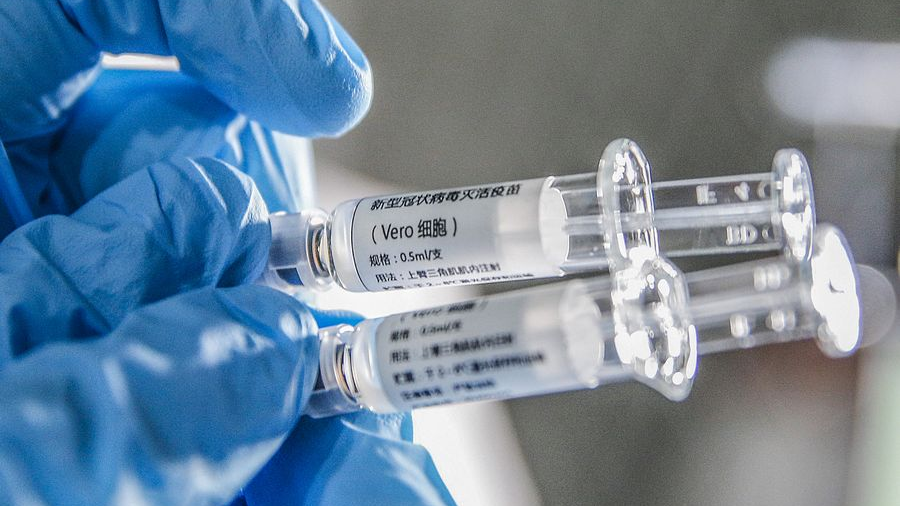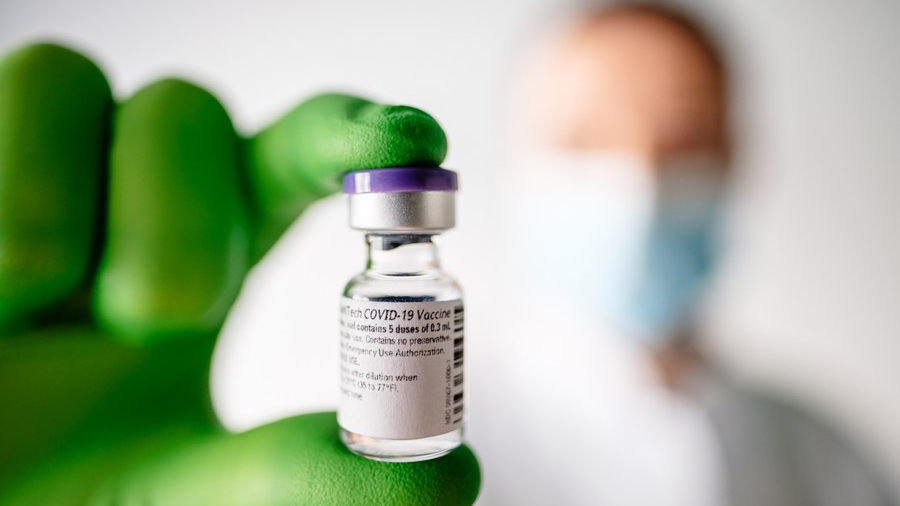
A staff member displays samples of the COVID-19 inactivated vaccine at Sinovac Biotech Ltd., in Beijing, capital of China, March 16, 2020. /Xinhua
A staff member displays samples of the COVID-19 inactivated vaccine at Sinovac Biotech Ltd., in Beijing, capital of China, March 16, 2020. /Xinhua
Editor's note: Bradley Blankenship is a Prague-based American journalist, political analyst and freelance reporter. The article reflects the author's opinions and not necessarily the views of CGTN.
The Easter holiday weekend has brought hope to some parts of the world, including several parts that I have a personal connection to. Where I live in the Czech Republic, we are finally turning the corner on the most difficult part of the nation's COVID-19 outbreak so far after having endured one of the worst sustained outbreaks in the world.
The Czech Republic has been under a state of emergency since October that has suffocated life with tough but necessary restrictions. Over the weekend, Prime Minister Andrej Babis announced that this state of emergency will not be extended and freedom of movement will be restored – and hopefully not restricted again.
On April 6, Central European markets strengthened thanks to this positive sentiment. In the Czech Republic, the Prague Stock Exchange just hit its highest level since February 2020 on the back of this hope.
The U.S., my country of origin, is beginning to turn the corner on its COVID-19 outbreak thanks to the success of its vaccine drive. There is no question that the vaccine rollout in the country has so far reflected historical systemic inequalities, but indeed things continue to pick up faster and jabs are finding their ways into people's arms.

A vial of Pfizer/BioNTech COVID-19 vaccine. /Xinhua
A vial of Pfizer/BioNTech COVID-19 vaccine. /Xinhua
In fact, most of the country is opening vaccine registration up to all residents. Over the holiday weekend, friends and families of mine met in person – some for the first time in over a year – once again.
It was, I can imagine, a strange and cathartic experience that chiseled away at the frustration of a whole year in isolation and adds perspective to the over half a million American lives claimed by the COVID-19.
As things look hopeful in the Global North, however, it cannot be said enough that the fight against COVID-19 is far from over. By April 6, the global COVID-19 death toll surpassed 3 million – a testament to the fact that we are still very much in the grips of a deadly pandemic.
Perspective is also needed on the fact that it took over a year for the global COVID-19 death toll to reach 2 million while the next 1 million deaths unfolded over a three month span. This is because the U.S. endured a hellish winter outbreak and countries in the Global South, especially India and Brazil, continue to be ravaged by surging infections driven by new and more transmissible strains of the virus.
On the beginning of this week, India recorded a new record high in daily cases at over just 100,000, and it appears the more transmissible UK B117 variant is driving infections. Brazil has similarly been grappling with a resurgent infection that has decimated its health care system, continues to kill thousands of people every day and is being driven by the deadly P1 variant that current vaccines may not be as effective against.
Both countries, Brazil and India, lack adequate access to vaccines and are suffering as a result. But the public health crisis unfolding in these countries are not confined to their borders, as the COVID-19 pandemic has made abundantly clear, and that's why helping the Global South manage outbreaks is extraordinarily important to ending the pandemic once and for all.
Wherever COVID-19 is finding new vectors of infection, the risk of new variants that could endanger public health will persist. This is happening everywhere: the UK, South Africa, and Brazil, but also India, California, here in the Czech Republic and even in my home state of Kentucky. New strains of the coronavirus are emerging everywhere, all the time.
We are in a race against time to get vaccines into arms in order to stop the spread of existing strains, which we believe our vaccines are effective against right now, so that way they don't mutate into even more elusive or virulent strains and prolong the pandemic.
With this in mind, if the Global North does not want to repeat the pain of last year then it must help the Global South tackle its COVID-19 outbreaks through equitable vaccine distribution. None of us are safe until all of us are safe.
(If you want to contribute and have specific expertise, please contact us at opinions@cgtn.com.)

